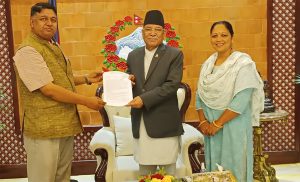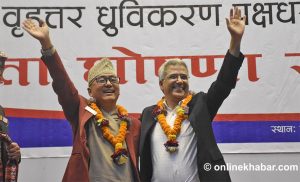
Nepal became a secular state after the promulgation of the 2007 interim constitution. Before that, Nepal had been an official Hindu state since 1962 as declared by the then constitution and an unofficial Hindu state before that time. Perhaps because of that, there are still some anti-secular laws in Nepal. While anti-secular laws seem natural given the majority of the Hindu population here, it seems unfair as some minor religious groups struggle for their identity.
The current constitution of Nepal, which came into force in 2015, retains the state’s secular character introduced by the interim constitution in 2007. However, the present constitution defines secular to mean the protection of religion and culture being practised since ancient times. But, in that case, religious and cultural freedom can be interpreted as offering special status to Hinduism. To say that Nepal is secular is like saying there is religious freedom and the government must protect those traditional religions and customs practised since ancient times, which it seems does not apply to religions that are less ancient (or Sanatan).
The same idea also governs some anti-secular laws in Nepal.
Blasphemy laws: Back to Hindu state?

The Muluki Criminal Code, 2017, which came into force in August 2018, retains a range of provisions prohibiting and criminalising proselytism, in a manner that is incompatible with international standards. But, the code also contains several vague and overly broad anti-blasphemy provisions that criminalise hurting religious sentiments and feelings. Section 156 of the code criminalises the hurting of religious sentiment, and section 158 prohibits religious conversion and undermining or jeopardising religions or faiths. The offence triggers a punishment of up to five years in custody and a fine of up to Rs 50,000. The offence also carries other consequences, for example, deportation if the offender is a foreigner.
The provisions related to blasphemy in the new Penal Code are incompatible with Nepal’s international human rights obligations, including those under the International Covenant on Civil and Political Rights (ICCPR). Article 18 of the ICCPR, in particular, guarantees the right of every individual to freedom of religion or belief.
Nepali laws are kind of similar to blasphemy laws that exist elsewhere in the region, including in India, Pakistan and Myanmar, where their enforcement has resulted in widespread abuse, mainly because these so-called religious offences have been instrumental in the persecution of people belonging to the minority religions.
Vishal Arora, a journalist based in India, rightly questions — Would the Nepali people see nations like Pakistan, Afghanistan, Bangladesh, and the Maldives, whose constitutions and anti-secular laws accord special status to Islam as their role models? Are these nations peaceful? How about Buddhist Sri Lanka? Are minorities happy in Sri Lanka? Are extremist Buddhist groups protecting their religion or giving it a bad name?
Making blasphemy laws in a secular country like Nepal has welcomed these long-term problematic issues and it has become a big fallacy to say we are a citizen of a secular state.
Judiciary’s non-secular stance
In the case of Chirbahadur Gahatraj et al v Prime Minister and Council of Ministers, Nepal Law Journal 2012 (2068BS), Vol 10, Decision No 8707, justices Prakash Wasti and Kamal Narayan Das pens, “When more than 80 per cent of the population are Hindu who follow Hindu culture and religion, which has been ongoing since ancient times, the state has to preserve and protect such religion and culture.” This interpretation appears to be discriminatory and indicates a preference for Hinduism over other religions and beliefs. It hence became an example of anti-secular laws in Nepal.
Similarly, the apex court’s interpretation in the case of Charles Mendes et al v His Majesty’s Government, Nepal Law Journal 2046, Vol 6, Decision No 3855 is also relevant in this regard. In this case, it was explicitly mentioned that the constitution only protects the religion that exists from time immemorial.
This precedent is still clearly resembled in the explanation portion of Article 4 of the constitution.
At the end

Secularism means that the state shall not discriminate against any citizen on the grounds of religion only. That means the state shall have no religion of its own and all citizens shall be equally entitled to the freedom of conscience and the right to freely profess, practise, and propagate religion.
However, we are wrongly saying that there has been a great departure of Nepal from a Hindu-dominated nation to a secular state as there are still anti-secular laws.
What are the types of secularism? Has our constitution been proposed by giving a unique definition to it? Why is the judiciary still interpreting the laws in favour of Hindu fundamentalists and monarchists who have moral and material support from the national and international power spreading Hindutva?
Hence, there should be a robust debate on secularism and the existence of anti-secular laws in Nepal.























